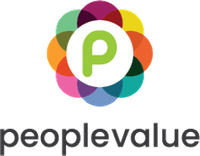How to promote kindness and boost your employees’ mental health with peer-to-peer recognition

Promoting kindness with peer-to-peer recognition
Peer-to-peer recognition plays a key role in establishing a culture of kindness in the workplace. This can improve employees’ mental health because it empowers and encourages them to freely use their voices to publicly show appreciation and gratitude for each other. Using a peer-to-peer recognition tool, employees simply log-in, nominate a colleague, and send a thank you message or acknowledge something commendable they’ve done. With some platforms, these positive messages are then displayed on a social wall for other employees to see and engage with. Therefore, an act of kindness that takes just a couple of minutes, is visible across the business and encourages other employees to do the same.
By integrating peer-to-peer recognition into your business and getting employees on board, you’ll create a culture where positive behaviour and acts of kindness are acknowledged, celebrated and are part of everyday life. This can boost your employees’ mental health in a number of ways.
Driving positivity across your business
Doing something nice for someone else makes us feel good, doesn’t it? Studies have found that acts of kindness are linked to increased feelings of wellbeing and there is some evidence to suggest that helping others is linked to happiness. So, when an employee uses a peer-to-peer recognition tool to acknowledge a colleague, for example, they’ll feel positive about themselves because they’ve made an effort to say something nice about someone.
Equally, when an employee receives recognition from a colleague, that’ll make them feel good too. A recent study found that feeling appreciated is a key driver for employee happiness, so getting a ‘thank you’ out of the blue can have a really positive impact on someone’s mood and even give them a better outlook for the day ahead. So, by having a peer-to-peer recognition tool in place, you’re creating more chances for your employees to recognise each other and will drive positivity throughout your business, which will benefit their mental health and wellbeing.
Helping employees to build and strengthen relationships
Workplace relationships and our social wellbeing can have a huge impact on our mental health. By having a peer-to-peer recognition tool in place, your employees have the opportunity to create new connections and strengthen their existing relationships with colleagues which can benefit their mental health. There is no hierarchy with peer-to-peer recognition either: everyone in the business, no matter what department or job role, has the same ability to recognise someone and equally receive recognition back.
For example, an employee could recognise a colleague from a different department or location, which could then open up a line of communication between them – one that may never have happened if a peer-to-peer recognition tool wasn’t in place. If your tool has a social wall, other employees can see all instances of recognition and can comment on them, which can open up another channel of communication between employees and give them the opportunity to interact with different people.
Enhancing your community and employees’ sense of belonging
We all like to feel that we belong somewhere, to feel that we are an accepted and appreciated part of a community. It’s essential to our mental health and wellbeing. That is why workplace inclusivity is so important, because all employees deserve to feel seen and heard. Peer-to-peer recognition supports this because everyone has access to the same tool which allows them to see the bigger picture of what’s happening in the business, as well as use their voice.
Not only are employees connected through their shared involvement in the tool, they’re able to see how their role fits into the wider business and contributes to overall growth and success. Seeing this bigger picture and being on a level playing field with everyone else in the business, enhances employees’ sense of belonging which can be beneficial to their mental health.
This is especially poignant at the moment with so many businesses now operating remotely. Employees may feel isolated working from home and might lose sight of how they fit into the business community. So, being able to connect with colleagues through a peer-to-peer recognition tool is significant and can benefit their mental health tremendously.
Boosting employees’ confidence
Too often, employees feel under pressure and worry that they’re not doing enough at work which can have a negative impact on their mental health in the form of low self-esteem, stress, anxiety, sleepless nights – you name it. However, when employees’ achievements are acknowledged and they receive praise for something they’ve done, no matter how big or small, it gives their confidence a well-deserved boost and reassures them that they’re doing a great job. This can boost their mental health and make huge difference to how an employee feels about themselves, it can even relieve some of the pressure they’re putting themselves under.
Peer-to-peer recognition is also valuable because there’s no criteria for recognition. Employees can say ‘thank you’ or ‘well done’ for anything that they think deserves it.
This is why peer-to-peer recognition is an underrated tool because it’s not only about giving employees the freedom to send a thank you message. It can also support your employees’ mental health and wellbeing because it encourages kindness, spreads positive news around the business and ultimately helps to create a culture in which employees feel valued, supported and connected.
The is article is provided by peoplevalue.
Supplied by REBA Associate Member, peoplevalue – The Employee Engagement Company
We are a leading provider of employee reward&recognition, benefits delivery&wellbeing solutions.







